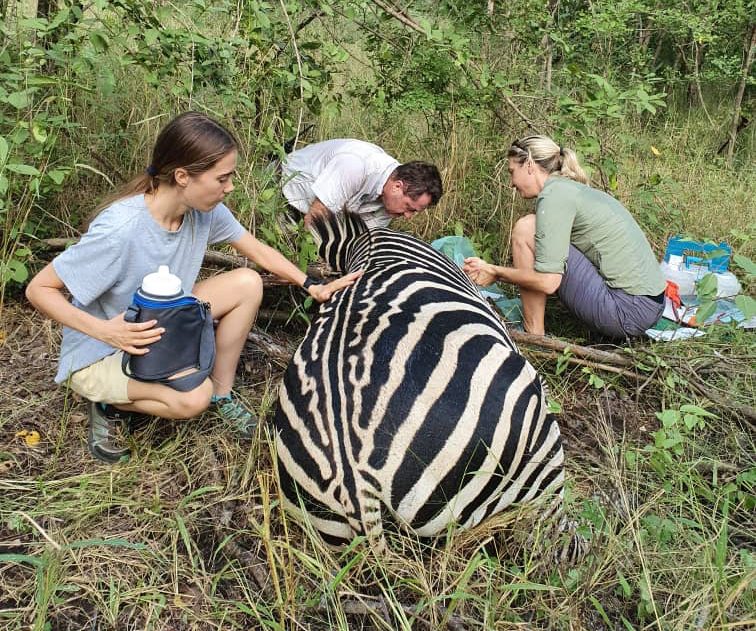Tracking Key Species
As part of our collaboration with African Parks Majete (APM) in Malawi, we're assisting with the monitoring efforts of key wildlife species, in particular, lions. In the Majete Wildlife Reserve, it is very important to keep track of the number of predators in the park, as well as their preferred prey species and offspring.
Collaring Wild Lions
To track lions, the animals are darted and fitted with a telemetry collar. The park's managers and rangers, coupled with our wildlife vets, have extensive experience with fitting tracking collars and always take great care to ensure the process is safe and stress-free for both the animal and people. Once fitted, the monitoring team can track the lion, and if it's living in a group, it's pride. This makes monitoring the health of the lions much easier, as well as ensures the safety of people living in surrounding villages. In the case where a lion escapes from the park, with a tracking collar in place, the rangers can easily locate and dart the animal, and bring it back into the grounds of the park.
"Laura" the Lion
Fitting lions with tracking collars is not a simple task. These interventions take a lot of time, and many hours are spent driving around inside the park, looking for animals, and listening to telemetry signals. That's why on many occasions, we don’t succeed. We just have to try and try again.
Over the past two years in the Majete Wildlife Reserve, roughly 15 lions have been fitted with tracking collars. Laura, a 12-month-old lion, is one of them.

Dr. Dagmar, our vet based in Malawi, worked alongside the Park Manager and Field Operations Manager to locate Laura within the Majete Wildlife Reserve, an area that spans 270 square miles. At 12 months of age, Laura is able to fend for herself and has recently separated from her mother. However, Laura and her two siblings remain close. Luckily for our team, tourists had already spotted the group of three lions that afternoon at the watering hole, so they knew where to look.
A long evening of searching the park paid off. They found Laura and her two siblings resting together in the long grass. Laura was darted and fitted with a collar, whilst her siblings remained close by, watching very carefully. When Laura woke up from sedation, the team had retreated to a safe distance, and Laura's siblings were already by her side.


Treating Injured Zebras
In the Majete Wildlife Reserve, our vets are also on hand to treat wildlife in need. So, when a zebra was kicked by another zebra, tearing its lower lip, Dr. Dagmar was called in to assist.
The lip tear was severe. The zebra's lower lip was now a 20-centimetre skin flap, hanging from his face.

After darting the zebra, the team found the injured animal 10 minutes later asleep in the bush.

Dr. Dagmar got to work; removing the skin flap and suturing the wound.


After the surgery was finished the anaesthetic was reversed, the stallion woke up without any problems and ventured off into the bush. A job well done.

Donate today, and you can help provide expert veterinary care to wildlife around the world, from treating injured zebras in Malawi to caring for sick and orphaned elephants in Myanmar.
Subscribe
Sign up for our mailing list to get our latest news direct to your inbox.